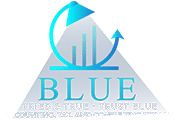Understanding S-Corporation Taxation – What You Need to Know
Understanding S-Corporation Taxation – What You Need to Know
Navigating the tax system is a reality for all of us, but it can be particularly intricate for business owners. S-Corporations, which have gained popularity among small businesses due to benefits like limited liability and pass-through taxation, also come with complex tax rules. In this article, we’ll delve into S-Corporation taxation, providing insights to help taxpayers effectively navigate this intricate system and ensure compliance with IRS regulations.
What is an S-Corporation?
An S-Corporation is a type of business entity that provides pass-through taxation to its shareholders. This means that the profits, losses, and deductions of the business are passed on to its shareholders and taxed on their individual tax returns. S-Corporations allow for the profits and losses to be reported directly on the shareholders’ personal tax returns, avoiding double taxation that is common with C-Corporations. To qualify as an S-Corporation, a business must meet certain criteria, such as having no more than 100 shareholders and only one class of stock.
How are S-Corporations Taxed?
S-Corporations are taxed differently from traditional corporations. They do not pay federal income tax at the corporate level. Instead, the profits, losses, deductions, and credits of the S-Corporation flow through to its shareholders. Each shareholder reports their share of taxable income or loss on their individual tax return, based on their tax bracket. This pass-through taxation structure is a key feature of S-Corporations, allowing shareholders to avoid double taxation and simplifying the tax process for the corporation itself.
How to Report S-Corporation Income on Your Tax Return and Calculate S-Corporation Tax
To accurately report S-Corporation income on your individual tax return, you must first calculate the corporation’s ordinary business income or loss. Next, determine each shareholder’s distributive share, which is the percentage of profits or losses they are entitled to receive based on their ownership in the company. This share must be reported on your personal tax return and taxed at your individual income tax rate. The process involves completing Form 1120S, U.S. Income Tax Return for an S-Corporation, which details the corporation’s income, deductions, and credits for the year. Each shareholder will receive a Schedule K-1 showing their share of the S-Corporation’s income or loss, which should be reported on their individual tax returns using Form 1040.
Reasonable Compensation Requirement
One critical aspect of S-Corporation taxation that business owners must understand is the requirement for reasonable compensation. The IRS mandates that S-Corporation owners who provide significant services to the business must pay themselves a reasonable salary. This salary should be commensurate with what would be paid for similar services in the open market. This ensures that owners do not avoid payroll taxes by taking distributions in place of a proper salary. Failure to comply with this requirement can result in IRS penalties and back taxes for the corporation.
What are the IRS Deadlines for S-Corporation Tax Returns?
S-Corporations must file their tax returns by March 15th of each year. However, if March 15th falls on a weekend or holiday, the deadline is extended to the next business day. If the S-Corporation cannot file its tax return by March 15th, it can file for a 6-month extension using Form 7004. This will give the S-Corporation until September 15th to file its tax return. However, it is important to note that an extension to file does not extend the deadline to pay any taxes owed. If an S-Corporation owes taxes, it must pay them by the original due date of March 15th to avoid penalties and interest.
Understanding S-Corporation taxation is crucial for small business owners. While S-Corporations offer benefits like pass-through taxation and limited liability protection, they also come with complex tax rules. To avoid IRS penalties and stay compliant, taxpayers must comprehend what an S-Corporation is, how it’s taxed, and how to report S-Corporation income accurately. Staying informed about IRS deadlines and seeking professional advice when needed can help taxpayers optimize tax savings and navigate the challenges of S-Corporation taxation effectively.

